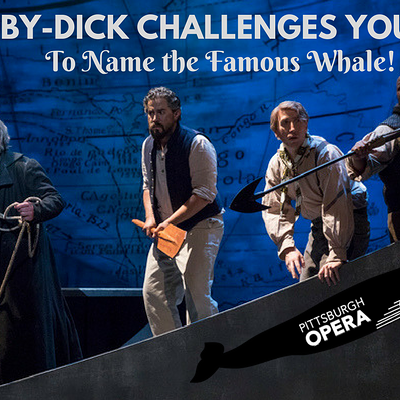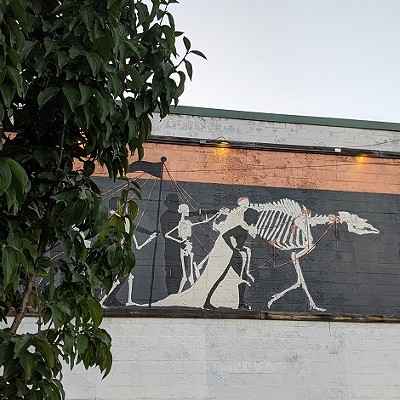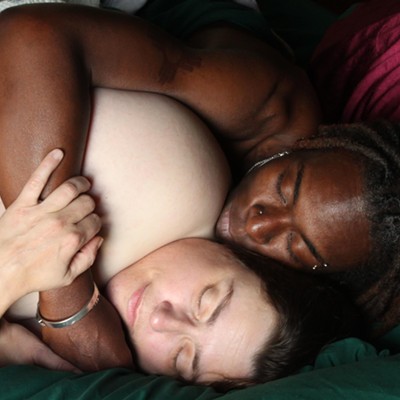Thursday, March 1, 2018
Pittsburgh Music Ecosystem Project Town Hall Meeting raises more questions than answers
“We’re not expecting to walk out with any answers,” Abby Goldstein said on Tue., Feb. 27, from the stage of the Kelly-Strayhorn Theater, in East Liberty. “We’re gathering input.” The general manager of 91.3 WYEP-FM, Goldstein was there to moderate the Pittsburgh Music Ecosystem Project Town Hall Meeting, a mouthful of a title for an effort geared toward strengthening the Pittsburgh music scene.
The event served as the next step following a joint effort by WYEP, the City of Pittsburgh and the Pittsburgh Downtown Partnership, fueled by a $30,000 grant from Heinz Endowments. Five panelists, all with some connection to Pittsburgh music, spoke candidly with Goldstein and fielded questions from the audience.
The panel consisted of: Emily Plazek, CEO of MIC (Music Industry Connected); Charles “Poogie” Bell, Grammy-award winning jazz drummer, producer and composer; Liz Berlin, of Rusted Root and co-owner of Mr. Smalls Theatre, among other things; Thomas Agnew, editor in chief of JENESIS magazine and co-founder of BOOM Concepts, a community organization that works with artists and musicians; and Dave Wheeler, guitarist/vocalist of Outsideinside and Carousel.
Audience members were encouraged to submit questions to the panelists. Volunteers handed out blue index cards at the entrance to jot them down. In a savvy technological move, the meeting was hooked up to the sli.do app, allowing the chance to inquire that way, take a couple surveys, or — as many did — to simply vent. The submitted text was then projected onto screens above both sides of the stage.
Goldstein opened the meeting, but as the evening wore on, many forgot the event was serving as more of a fact-finding mission, than a search for immediate answers.
When it was announced last fall that the city’s long-standing community-supported radio station was banding with city government and the PDP, many in the community (myself included) took to social media to grouse about it. At issue was the fact the work seemed to focus on Downtown Pittsburgh, which has very little in the way of a club scene, at least when compared to Lawrenceville or even the South Side.
Particular umbrage was taken with the hiring of Don Pitts, a paid consultant from Austin, Texas, who was coming to town to check things out and follow up with a report. Annoyance at the thought of an outsider telling us what was good for our scene seemed to set the tone for the evening. The opinions were as wide-ranging as the music that can be found in the city. But, like a lot of things on social media, things weren’t as cut and dry as they first seemed, either.
The panelists started out talking about the positives of the city, with overlapping opinions that Pittsburgh does include a wealth of talent. But audience members quickly got bogged down in the semantics, obsessing on the term DIY, and going so far as to ask how a “do it yourself” artist can appeal to the “big wigs” in town. While DIY, to this writer, conjures thoughts of bands that frequent the Roboto Project and don’t give two hoots about wider appeal, it became clear that the term DIY — or as Berlin later suggested “DIO,” or “do it ourselves” — can be utilized by anyone who has the initiative to write their own songs and book their own shows. The "big wigs," on the other hand, were never clearly defined, which resulted in a pothole that took a while to move beyond.
Like any town-hall meetings, things got uncomfortable at certain points. As people began yelling questions from the audience, the low point came when a loud gentlemen in the upper rows demanded to hear from Pitts — and kept shouting at him, a la Foghorn Leghorn, never allowing him to answer any questions. Another person stood up and felt the need to name-drop local jazz musicians (ignoring any current ones) and asking why the city didn’t do anything to celebrate the Grammy nomination of local metal band Code Orange. (It should be noted that Mayor Peduto gave them a shout-out on Twitter.)
The panelists were also accused of side-stepping questions, although their answers seemed more like tough love and calls to action. When someone wished for events to be held for networking purposes, Dave Wheeler had an answer: “There are networking events for musicians. They’re called shows.” Poogie Bell touched on a subject that could arguably be considered one of biggest when it comes to shows. It’s normal to see people walking into a venue and freaking out at the prospect of paying $5 for admission (where often as many as three bands are playing), though they wouldn’t bat an eye about paying three times that price to see a movie like Black Panther. For that matter, most people will drink more than $5 at a bar.
When the subject came up about grants being used to pay musicians, Liz Berlin put it back on the audience, encouraging people to work with the Greater Pittsburgh Arts Council to find assistance with grant-writing. As far as getting rid of the entertainment tax, which has impacted the city for so long, “Some of you people need to run for office,” she said.
Ultimately, Goldstein was right — the answers weren't going to come on Tuesday, in part because there are too many damn questions. And it’s easier to complain than to be the one to stand up and say, “OK, I’ll do something.” (Social media featured at least one post-town-hall rant that mentioned Pittsburgh City Paper as one of the outlets that only cares about 10 musicians in town. As a veteran of local media, I’d be willing to bet there are more people out there saying, “They should just know about our show,” than there are people pitching a story.)
Music is hard to do. It’s also really subjective. I might think your favorite album (if you can call it that) is derivative and boring, while my favorite new jazz album very likely sounds like noise to you. You might think a favorite local band is full of people who can’t play their instruments, while I think they really do something great with the skills they have. If you caught them more than once, hell, you might even change your mind about them.
Regardless, it’s fine. The city is full of all kinds of diverse musicians. You don’t have to like all of them. The ones who are really passionate about what they do will keep doing it, regardless of what Don Pitts or anyone thinks. Whether or not this "ecosystem" will benefit you, give your music all you’ve got.
Tags: Pittsburgh Music Ecosystem Project Town Hall Meeting , Abby Goldstein , Kelly-Strayhorn Theater , WYEP , Emily Plazek , FFW>> , Image
















